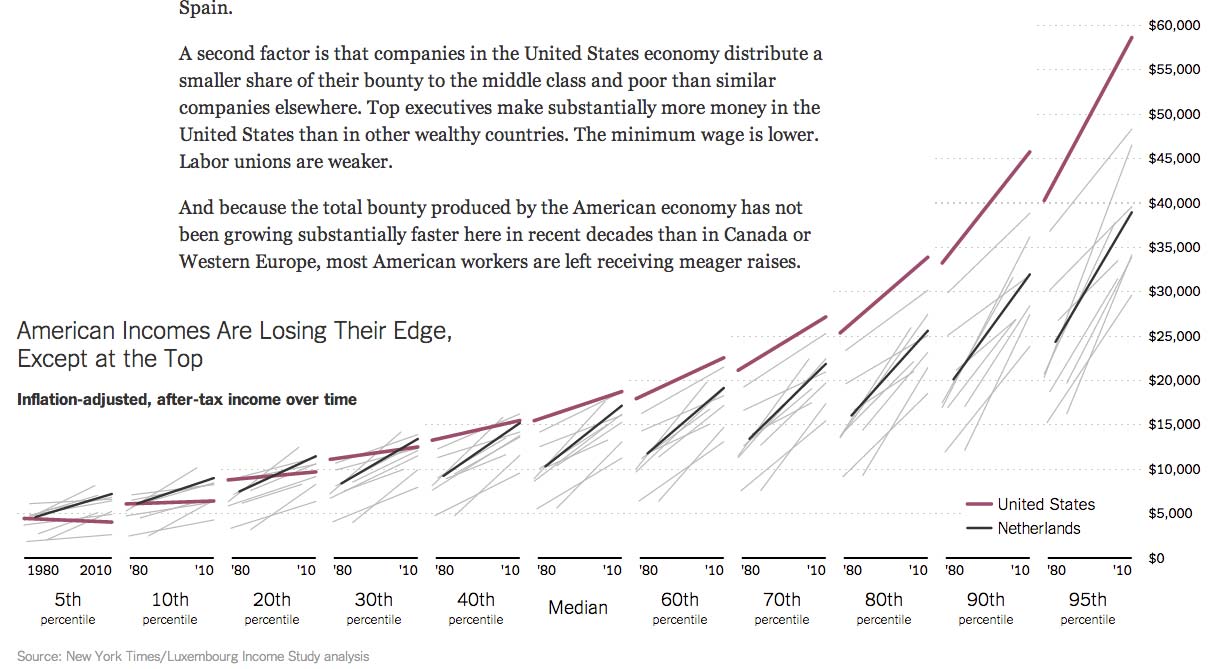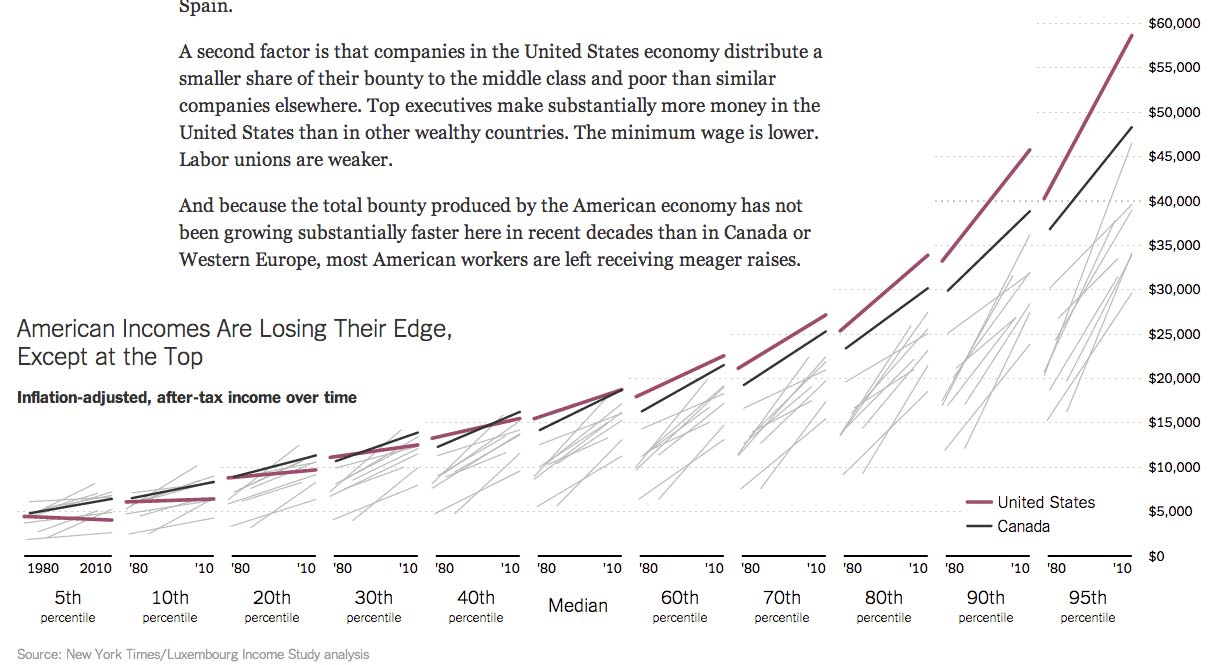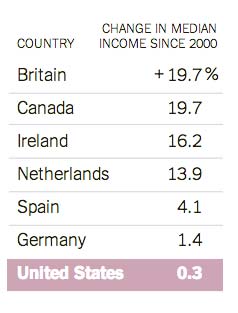That seems like a nonsensical question. Of course, each of us born where he or she was born, and we didn’t have much choice in the matter. But, philosopher John Rawls asked, if you lived behind a veil of ignorance, not knowing what position you would occupy in the socio-economic hierarchy, what rules would you choose to govern society?
Rawls was reasoning from a situation in which people could decide on any set of rules.* In the real world, the set of existing countries gives us a limited set of options to choose from; among those, if you didn’t know if you were going to be rich or poor, where would you choose to be born? On Friday, I was discussing this question with a scholar who is in the United States for a year, and one thing we noted was the instinctive tendency of many Americans to assume that we must be the best at everything and have the best of everything in the world (best health care, best Constitution, best hockey team, etc.).
The data-driven answer is probably the Netherlands or Canada. Here are the changes in median after-tax per capita income in the Netherlands (black) and the United States (red) over the past three decades, courtesy of The New York Times (you can ignore the text that I included in the screenshot).

Click here to view full-size in new window.
In words, poor people do a lot better in the Netherlands, middle income people do almost as well, and rich people do less well. Since the thing you want to hedge against is being born poor (and let’s not get into the question of social mobility, which makes the United States even worse), you should be willing to trade off extra income in the 95th percentile for extra income in the 5th percentile.

Click here to view full-size in new window.
When you look at the red lines, this is just another way of looking at rising inequality. Note in particular the negative slopes for people in the 5th and 10th percentiles. But in comparative terms, it’s increasingly clear that while we like to think of ourselves as the richest country in the world (leaving aside a few anomalies like oil states and tax havens), that’s only true for practical purposes if you’re in the top half of the income distribution. Remember that rising tide floating all boats thing? Not so much.
Current trends are not in our favor, either:

There are lots of reasons for these outcomes, but one is a tax system that, by comparison with other advanced economies, takes less from the rich and redistributes less to the poor. And, of course, the current trend in tax policy is getting worse, not better, with the extension of most of the Bush tax cuts and the freezing of taxes on investment income at 20 percent.
How is any of this making ours a better country?
* This is the subject of a very brief and undoubtedly simplistic discussion in White House Burning, in the context of social insurance programs.
Before Midnight: Last Chance to Have Your Gift Matched!
Before midnight tonight, all donations to Truthout will be matched dollar for dollar up to $11,000! Thanks to a generous supporter, your one-time gift today will be matched immediately. As well, your monthly donation will be matched for the whole first year, doubling your impact.
We have just a few hours left to raise $11,000 and receive the full match.
This matching gift comes at a critical time. As Trump attempts to silence dissenting voices and oppositional nonprofits, reader support is our best defense against the right-wing agenda.
Help Truthout confront Trump’s fascism in 2026, and have your donation matched now!
